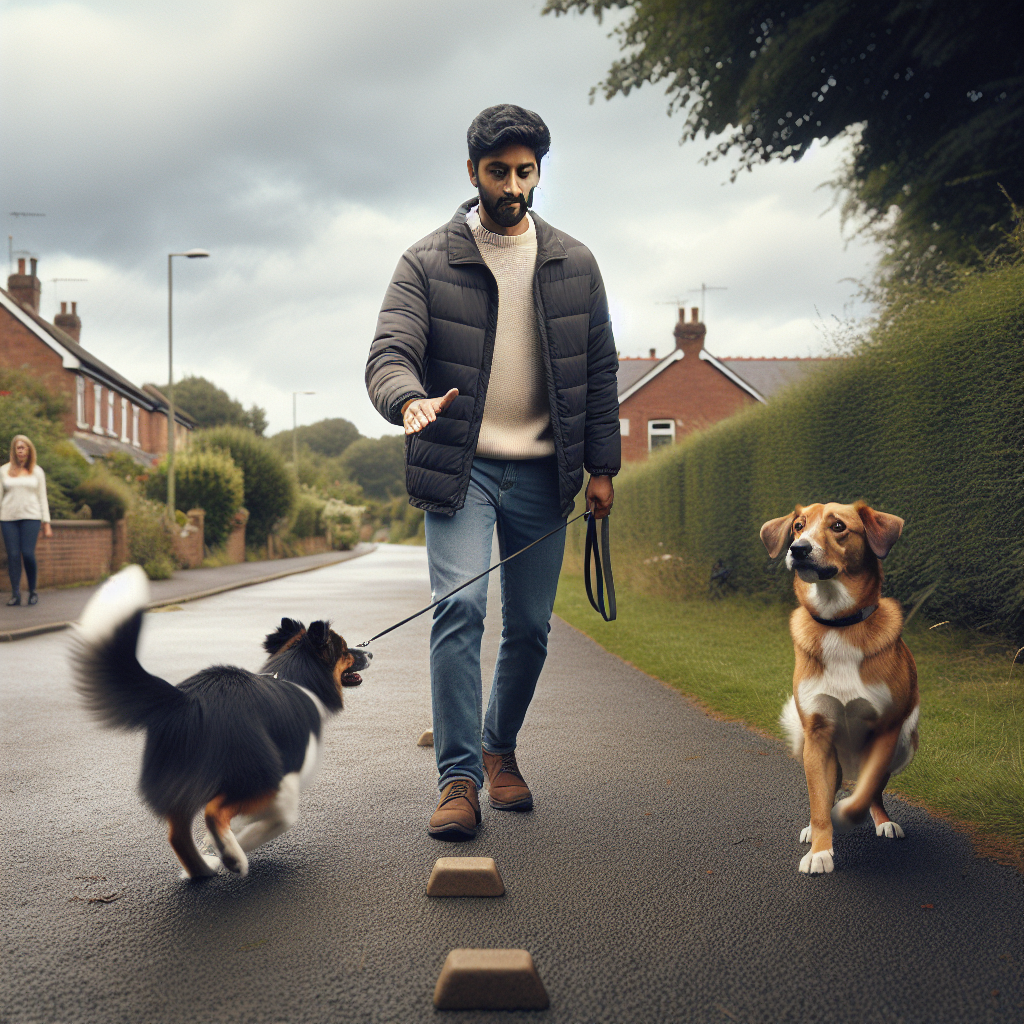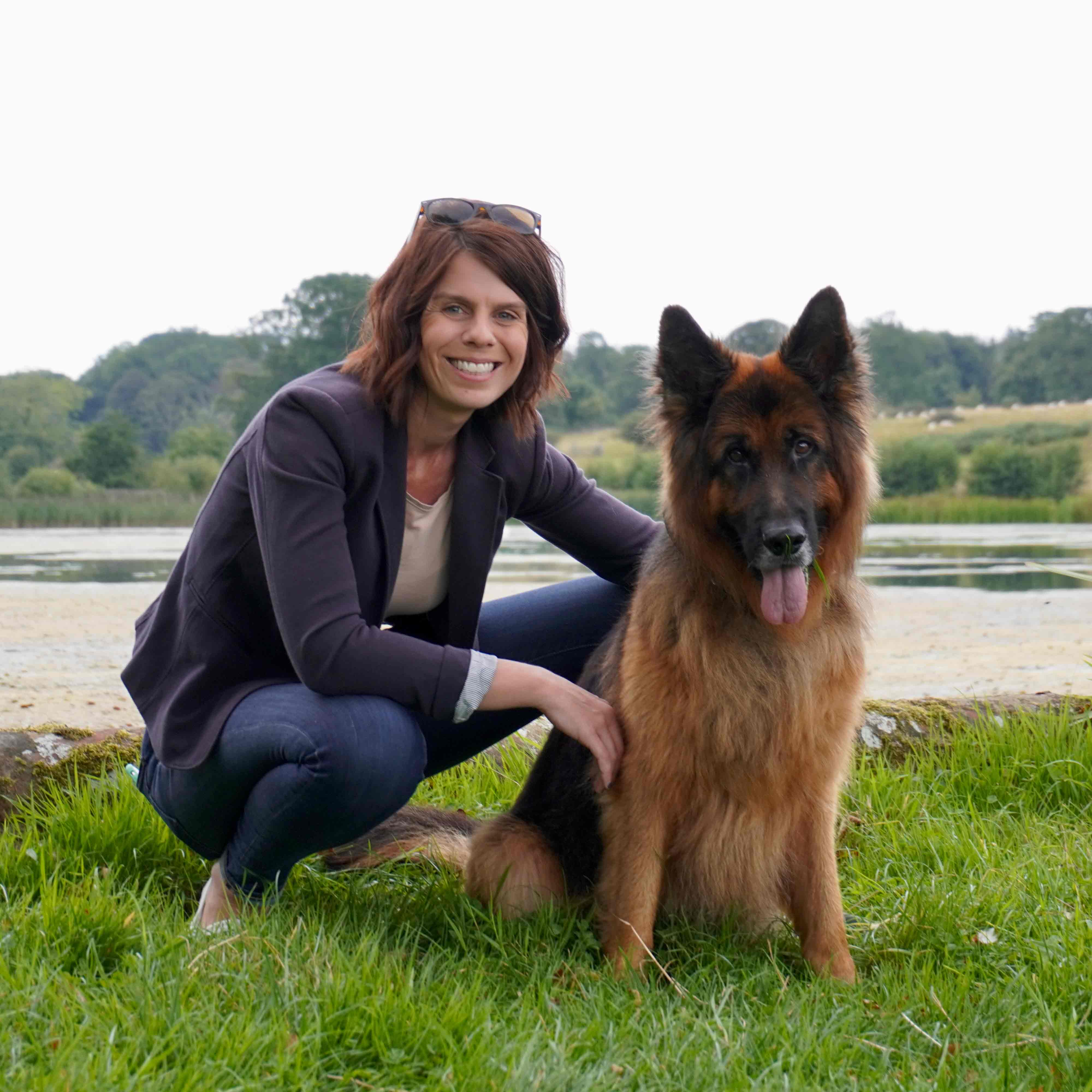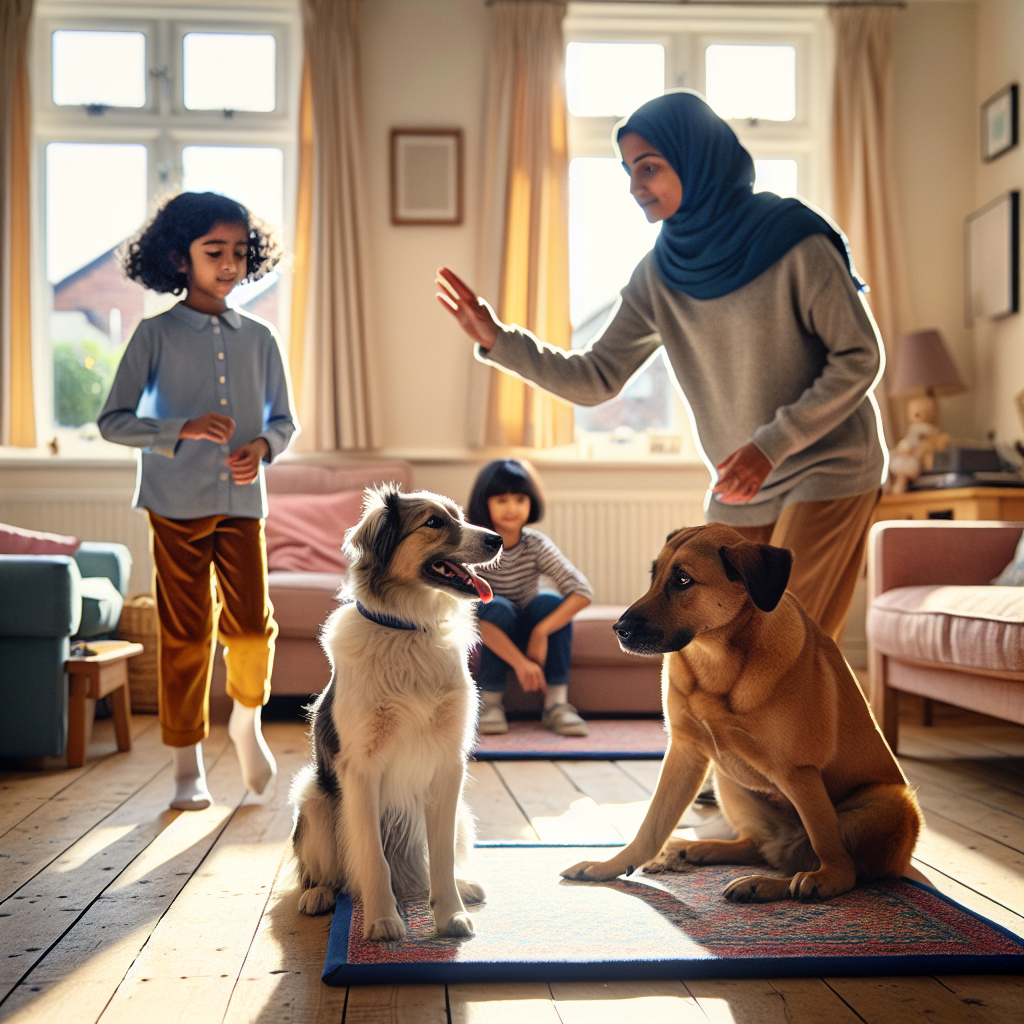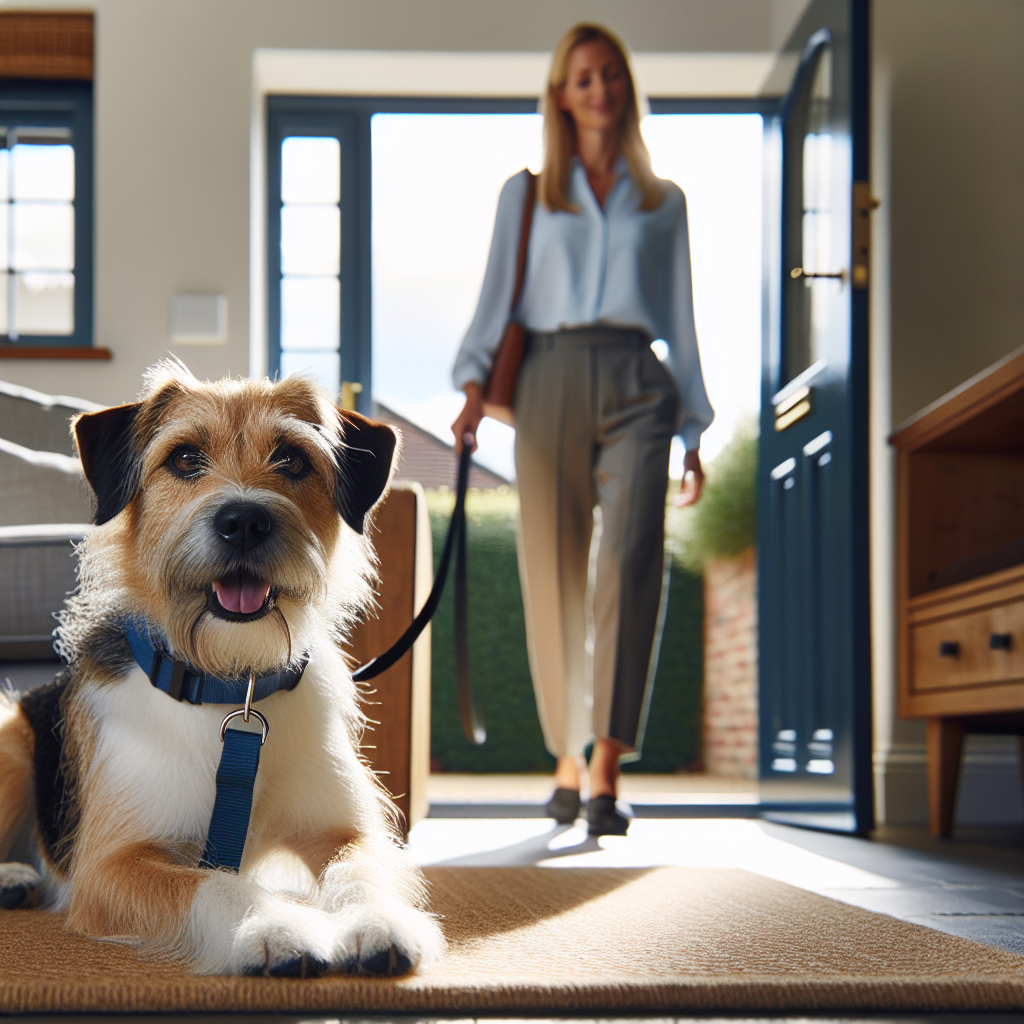Dog Barking at Other Dogs on Walks

Why Dogs Bark at Other Dogs on Walks
Dog barking at other dogs on walks is one of the most common issues families face. It feels stressful, it looks embarrassing, and it can limit where you go and when you walk. At Smart Dog Training, we see this every day and we resolve it with structure, precision, and coaching you can actually follow. When a dog barks at another dog on a walk, it is usually driven by one or more of these forces: excitement, frustration, uncertainty, or learned habit. Without a clear plan, the behaviour repeats and strengthens over time.
Our Smart Method gives you a step by step path to stop dog barking at other dogs on walks. It develops confidence, builds engagement, and creates calm accountability. If you want fast progress, working with a Smart Master Dog Trainer (SMDT) ensures timing and handling are correct from the start. The result is a reliable heel, quiet passing of dogs, and relaxed walks you can enjoy anywhere.
The Real Cost of Barking on Walks
Dog barking at other dogs on walks is more than noise. It increases your dog’s arousal, reduces clear decision making, and puts you on the back foot. You may begin to avoid parks or busy paths. You may walk at odd hours to dodge triggers. This takes a toll on your routine and on your dog’s mental state. The longer the pattern continues, the more it becomes the default response. Smart Dog Training addresses this with a structured system that replaces the old habit with a new, calmer pattern.
- Stress and embarrassment for the family
- Reduced exercise quality and missed enrichment
- Escalation over time if left unaddressed
- Risk of conflict with other dogs and owners
The good news is that dog barking at other dogs on walks can be changed. With the Smart Method, you will install clarity, provide fair guidance, and reward the right choices in a way that lasts in real life.
The Smart Method Overview
Every Smart programme follows our proprietary Smart Method. This is how we stop dog barking at other dogs on walks and build calm, consistent behaviour that holds up in busy environments. The method has five pillars that work together to shape reliable outcomes.
Clarity Creates Confidence
We use precise commands and marker words so your dog knows exactly what earns reward and what ends pressure. Clear language removes confusion, which is a major cause of dog barking at other dogs on walks. When the dog understands the job, the dog can succeed.
Pressure and Release That Is Fair
We guide with fair pressure and give an immediate release the moment your dog makes the right choice. This teaches responsibility without conflict and keeps arousal from spiralling. Pressure is information, and release is how the dog finds the answer. Used with skill, this stops dog barking at other dogs on walks and builds a steady mind.
Motivation That Builds Desire to Work
Motivation keeps your dog engaged and eager. Food, play, and praise reinforce the behaviour we want, like a quiet heel as you pass dogs. The right reward delivered at the right time turns calm choices into habits. When motivation is woven into the plan, dog barking at other dogs on walks fades because the dog knows a better way to earn.
Progression That Holds Up in Real Life
We layer distraction, duration, and difficulty in a structured way. Your dog learns the behaviour first at easy distances, then with gradual exposure to real world triggers. This prevents overwhelm and ensures you have skills that work beyond the garden. Progression is how we turn early wins into complete resolution of dog barking at other dogs on walks.
Trust That Changes the Relationship
Trust comes from consistency. When your handling is predictable and your markers are clean, your dog trusts the process and relaxes. The bond grows because the world makes sense. Trust reduces stress, which reduces dog barking at other dogs on walks.
Step by Step Plan for Dog Barking at Other Dogs on Walks
This plan outlines how Smart trainers tackle dog barking at other dogs on walks. Work through each step with patience and precision. If you need hands on coaching, a Smart Master Dog Trainer will guide you through the process and show you the fine points that create lasting results.
Step 1 Prepare Your Marker Words
Choose three markers and keep them consistent during training. We use precise words in all Smart programmes.
- Yes marks the exact moment of success and releases your dog to a reward
- Good marks ongoing correct behaviour and tells your dog to continue
- No marks an error and resets the exercise without drama
Markers bring clarity. They are central to how we resolve dog barking at other dogs on walks because they make the conversation simple even when the environment is busy.
Step 2 Essential Equipment and Setup
Use a well fitted flat collar or training tool recommended by your Smart trainer, a standard lead, and high value food your dog loves. Keep the lead short enough to prevent lunging but with a light feel. Before heading out, rehearse your heel and focus inside where it is quiet. A steady heel is the backbone of fixing dog barking at other dogs on walks.
Step 3 Build Heel and Focus Indoors
Stand still, ask for heel position at your side, mark Good for a second of eye contact, then Yes and reward from your hand at your seam. Take one step, pause, Good, then Yes and reward. Slowly add steps and turns. Do short sessions. This creates a clear job that later replaces dog barking at other dogs on walks with calm attention.
Step 4 Start Outside at Easy Distance
Walk in a quiet area. Keep your dog in heel, pay with frequent Good markers, and feed behind your knee to keep position. If you see a dog far away, turn ninety degrees to create space and keep walking. Mark Good for looking to you and Yes when your dog stays quiet as the other dog passes at a distance. This is the foundation of changing dog barking at other dogs on walks.
Step 5 The Passing Dogs Pattern
Use this repeatable pattern to pass dogs calmly.
- See the dog first and choose your line. Aim to pass with a gentle arc, not a head on approach
- Call your dog into heel early and begin a steady flow of Good markers
- Keep a light lead and a slow walking speed. Calm speed creates calm mind
- If your dog hard stares or starts to load, say No, take two smooth steps away to open space, then reset heel and resume Good markers
- As the other dog passes, mark Yes for quiet, focused passing and reward behind your knee
Repeat this pattern. It turns dog barking at other dogs on walks into a predictable routine where your dog knows how to succeed.
Step 6 Add Distance, Duration, and Distraction
Progression is key. Work at a distance where your dog stays under threshold. Over days and weeks, reduce distance in small steps, increase how long your dog can hold heel, and pass dogs in busier spots. Keep wins stacked in your favour. This is how Smart trainers create real world reliability for dog barking at other dogs on walks.
Step 7 Handling Setbacks Calmly
Setbacks happen. If your dog barks, do not panic. Mark No once, step away to create space, reset heel, and go back to Good markers. Avoid chatter, avoid tension, and avoid letting the dog pull. You are showing your dog that quiet earns progress and barking does not. This keeps dog barking at other dogs on walks from becoming a self rewarding cycle.
Marker Timing That Drives Results
Timing turns theory into results. Yes should land right as your dog makes the correct choice. Good should maintain calm behaviour through the pass. No should be clean and unemotional, followed by a brief reset. Many families find their timing improves quickly with coaching from an SMDT, which speeds up change for dog barking at other dogs on walks.
Building a Rock Solid Heel and Focus
A reliable heel solves most of the friction that fuels dog barking at other dogs on walks. Here is how to strengthen it.
- Reward position, not just effort. Pay behind your knee to anchor the spot you want
- Change pace and direction often so your dog pays attention to you
- Practice neutral exposure. Walk near calm dogs at a distance while holding heel and marking Good
- Finish with a short play or food scatter in a quiet area to lower arousal before heading home
As heel becomes automatic, your dog spends less time scanning and more time working with you. That shift cuts off dog barking at other dogs on walks before it starts.
Smart Socialisation for Reactive Dogs
Socialisation is not free play with random dogs. Smart socialisation teaches neutrality and confident choices alongside you. For dogs that struggle with dog barking at other dogs on walks, we focus on structured exposure where the dog learns that other dogs are simply part of the environment. We coach owners to keep a calm pace, maintain clear markers, and reinforce composure. This reframes the walk from a chaotic event into a training opportunity that builds skill and trust.
Common Mistakes to Avoid
- Letting your dog fixate on other dogs. Interrupt early and return to heel
- Talking too much. Keep markers clear and purposeful
- Holding a tight lead. Aim for a light feel and use space to reset when needed
- Going too close too soon. Progress distance in small steps
- Feeding out in front. Reward behind your knee to hold heel
- Skipping daily reps. Short, frequent sessions change habits faster
Avoiding these errors will speed progress and reduce dog barking at other dogs on walks in a consistent way.
When to Bring in a Smart Master Dog Trainer
If your dog rehearses barking daily, if there has been a lunge or snap, or if you feel unsure about timing, it is time to bring in a Smart Master Dog Trainer. An SMDT will assess your dog, map a plan, and coach your handling in real situations. That one to one guidance dramatically reduces the time it takes to fix dog barking at other dogs on walks.
Ready to turn your dog’s behaviour around? Book a Free Assessment and connect with a certified Smart Master Dog Trainer available across the UK.
Smart Programmes for Lasting Results
Smart Dog Training delivers structured programmes designed to resolve dog barking at other dogs on walks and create calm, obedient behaviour that lasts. We work in home, in small group classes, and through tailored behaviour programmes. Every programme follows the Smart Method so your dog learns clear language, fair guidance with release, meaningful rewards, and stepwise progression. Your SMDT mentor supports you from the first session to reliable performance in parks, towns, and busy paths.
Realistic Expectations and Timelines
Most families notice early changes in one to two weeks when they follow the plan. Full resolution of dog barking at other dogs on walks depends on history, consistency, and how often you train. Daily short sessions work best. Over time, your dog will default to quiet heel, look to you for guidance, and pass dogs without fuss. The goal is not perfection in a single day, but steady progress that holds up anywhere.
What Success Looks Like
- Calm heel as you approach another dog
- Soft eye contact with you rather than fixation on the other dog
- Quiet passing at a workable distance
- Quick recovery if arousal rises
- Fewer rehearsals of dog barking at other dogs on walks each week
With each win, confidence grows on both ends of the lead. That confidence is the engine behind lasting change.
FAQs
Why does my dog bark at other dogs only when on lead
Being on lead removes options and can increase frustration. Your dog may feel stuck, which fuels dog barking at other dogs on walks. The Smart Method gives your dog a clear job and a calm pattern for passing, which reduces that frustration.
Will my dog grow out of barking on walks
Habits do not fade without training. Dog barking at other dogs on walks tends to strengthen over time. With structured practice and clear markers, most dogs improve quickly.
Should I let my dog meet every dog we pass
No. Random greetings build anticipation and pulling. We teach neutral passing first. Once neutrality is reliable, you can add planned greetings if suitable.
What if food does not motivate my dog outside
Use higher value rewards and adjust the challenge. Start farther away, increase your rate of Good markers, and keep sessions short. An SMDT can calibrate rewards to match your dog’s drive.
Is this safe if my dog has snapped before
Safety comes first. Work at greater distance, use equipment recommended by your Smart trainer, and rehearse the pattern under calm conditions. Book with an SMDT for tailored guidance.
How long will it take to stop dog barking at other dogs on walks
Many families see changes within weeks with daily practice. Timelines vary based on history and consistency. Smart programmes are designed to produce steady, lasting progress.
Conclusion and Next Steps
Dog barking at other dogs on walks is fixable with the right structure. The Smart Method gives you clarity, fair pressure and release, strong motivation, thoughtful progression, and growing trust. Put the plan in motion, measure your wins, and stay consistent. If you want expert coaching and results that last, book with a certified SMDT and train the Smart way. Your calm, confident walks are within reach.
Your dog deserves training that truly works. With certified Smart Master Dog Trainers (SMDTs) nationwide, you'll get proven results backed by the UK's most trusted dog training network. Find a Trainer Near You



